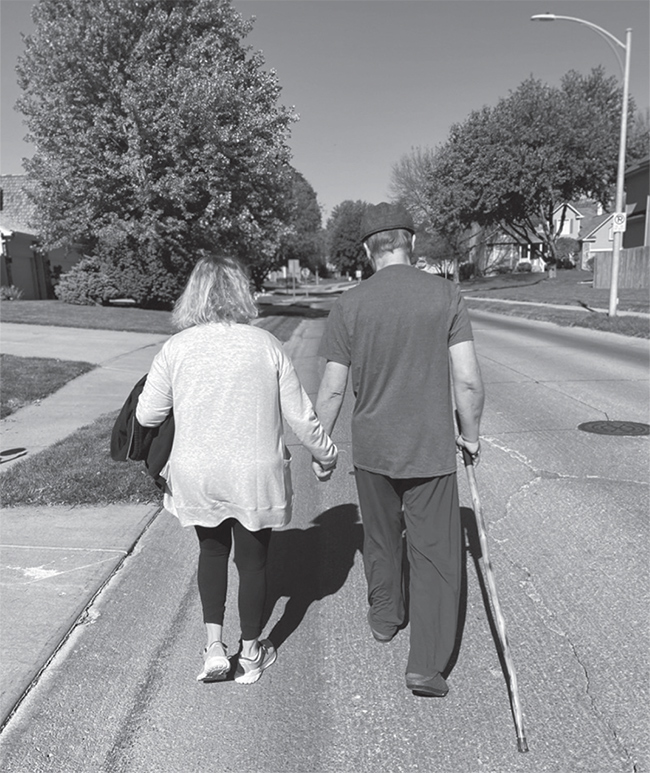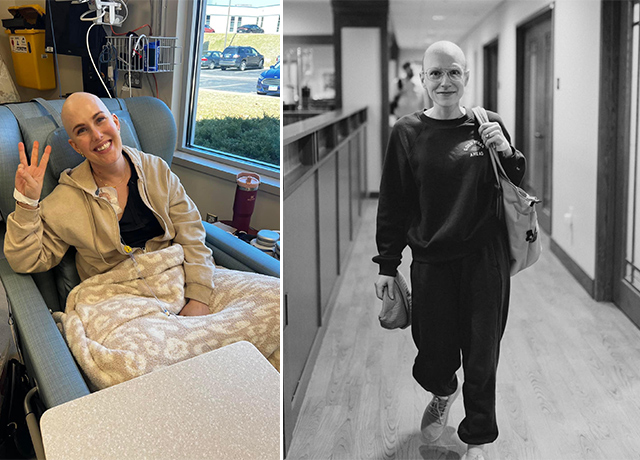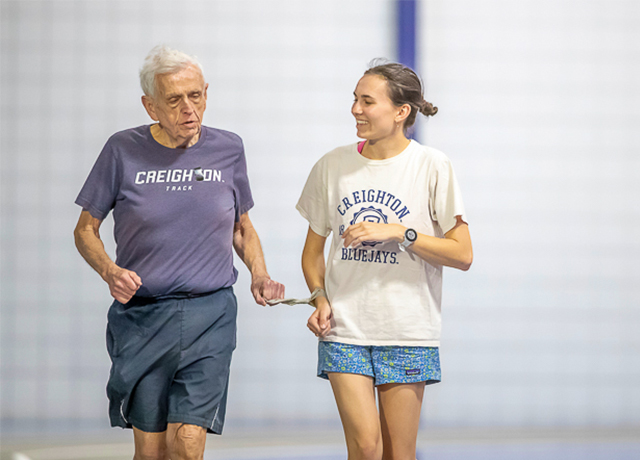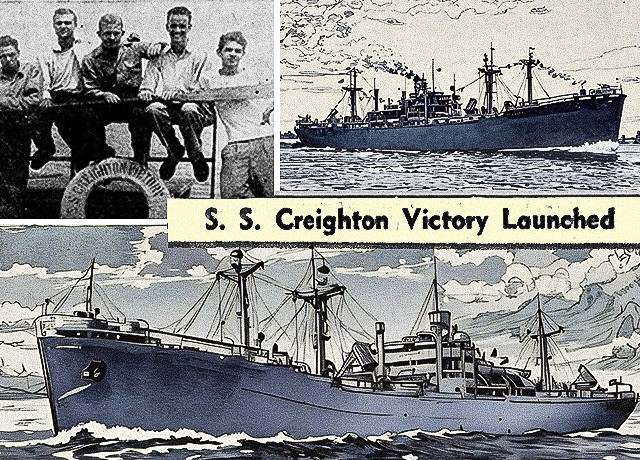Featured Testimonial About Creighton University
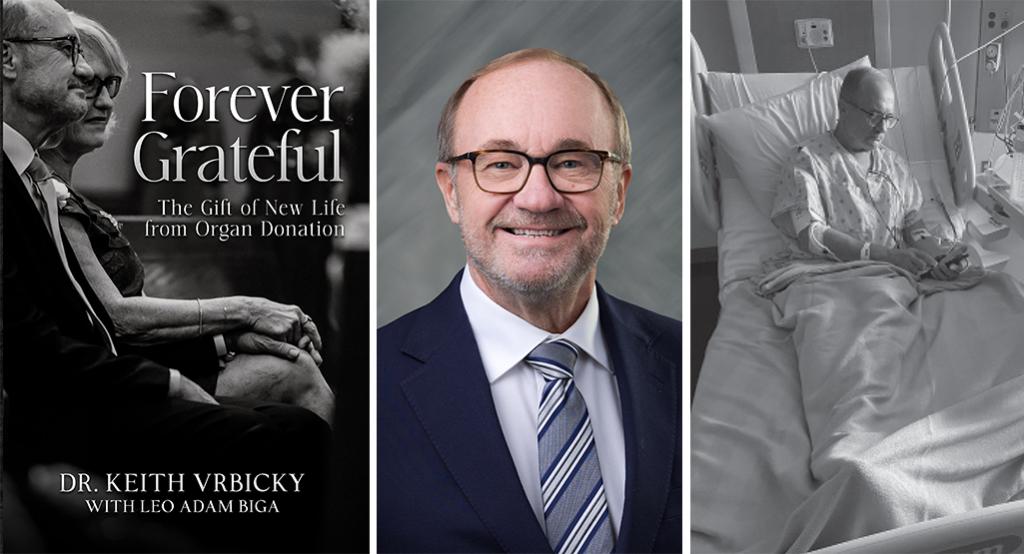
I thank God every day that I’m here and able to spend more time with my family and to practice the medicine I love to do.
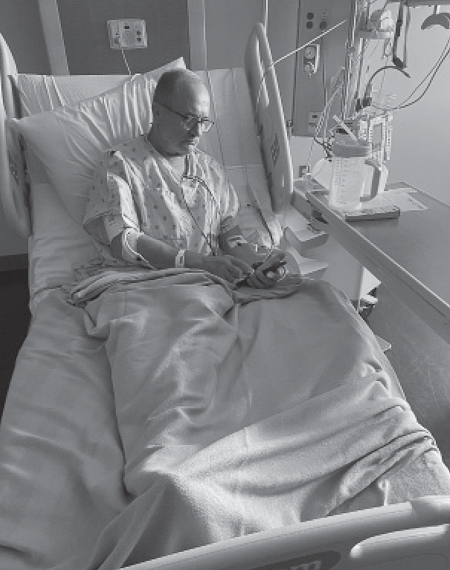
By Micah Mertes
In the fall of 2021, Keith Vrbicky’s heart was failing, and it was failing fast.
One moment, Vrbicky, MD’79, was in seemingly perfect health. The next, he was hooked up to a life-support system in the ICU, with his heart giving out (due to a rare, rapidly developing cardiovascular disorder) and other organs following suit.
Only a heart transplant would save his life. And within a very short window. Due to his quickly declining condition, he only had 48 hours to find a match. Vrbicky and the Nebraska Medical Center team caring for him knew finding one that soon would take a miracle.
Fortunately — for Vrbicky and for his wife Karyn and their six children and many grandchildren and for the thousands of families Dr. Vrbicky has cared for over the past 40 years at his obstetrics-gynecologic practice in Norfolk, Nebraska — this miracle came through.
Within 12 hours of Vrbicky going on the transplant list, an ideal match came up. About 24 hours after that, he was on the operating table.
A few months later, Vrbicky was once again caring for women and delivering babies. (He’s delivered more than 13,000 since he started at his Norfolk OB/GYN practice nearly 40 years ago.)
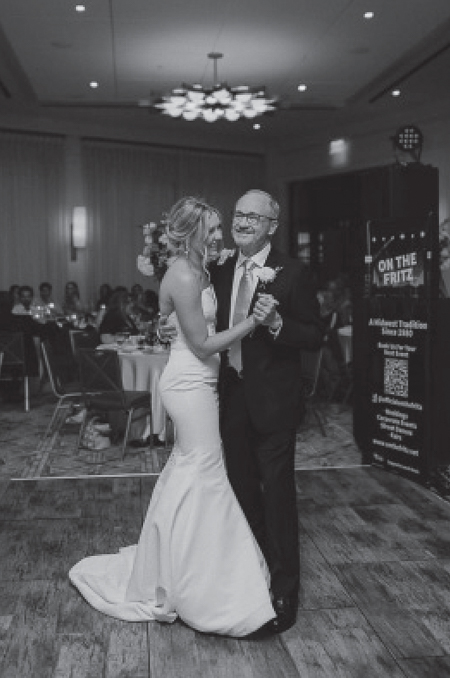
And last fall, about a year after his surgery, Vrbicky walked his daughter Michaela down the aisle at St. John’s Church. One of the best moments of his life was holding her in his arms during the father-daughter dance at the reception, swaying with her to Sinatra’s “Just the Way You Are,” profoundly moved by the simple fact of being alive to experience that moment.
Now, Vrbicky (with co-author Leo Adam Biga) has written and published a book about the experience called Forever Grateful: The Gift of New Life from Organ Donation.
The book chronicles Vrbicky’s harrowing journey from perfect health to near death, though it covers much more than that. It captures key moments in his life — his childhood in Clarkson, Nebraska, meeting the love of his life, his time as a Creighton medical student and assistant professor (he still maintains his faculty appointment in the School of Medicine), his founding of a successful telemedicine company and, of course, his many years caring for families in rural Nebraska.
But perhaps above all, Forever Grateful is about a longtime physician and man of faith who’s made it his mission to advocate for organ and tissue donation. Vrbicky now promotes the cause through Live on Nebraska, the state’s organ procurement organization.
“I believe God allowed me to live for a higher purpose,” Vrbicky says. “With every breath I have left, I want to impress upon the public the need for organ and tissue donors so that people don’t have to die needlessly while on the donor list waiting for a transplant.”
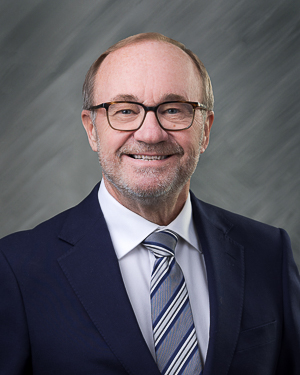
Since his own donor’s family chose to remain anonymous, Vrbicky doesn’t know whose heart he has. But his physicians say it’s “a young and very healthy heart.” As a tribute to his donor, to all donors, Vrbicky says he’s going to make the most of every beat it’s got left.
We recently spoke with Vrbicky about his new book, the need for organ donors and how his faith, family and community pulled him through the darkest moment of his life.
* * *
The primary purpose of your book, you’ve said, is to help educate people about the need for organ and tissue donation. I thought it was only fair that we start with that. What do you most want people to know about it?
Vrbicky: I want people to know there is such a tremendous need for it. I also don’t think that the public really understands that you are never too old to list yourself as a donor. And most people don’t realize that there’s a need for donations beyond the major organs. In addition to heart, lungs, liver and kidneys, there’s a need for cartilage, bone, muscle and ligaments.
As physicians, we are sometimes so busy in our specialty practices that we can get kind of siloed ourselves. I didn’t really realize the level of need for this service before I became a recipient myself.
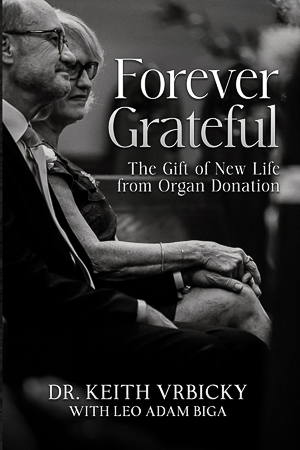
One of the details in your book that really stood out to me, and, I’ll be honest, gave me a little regional pride, was that Nebraska and the Midwest in general have a higher percentage of their eligible population register as organ donors. And that people from the coasts will sometimes even move to places like Omaha to increase their odds of getting a match.
Yes, Midwestern people tend to want to give more, not just of major organs but other tissues, as well.
In the book, when you’re describing your time as a patient experiencing congestive heart failure, you really dig into what it was like for you, as a lifelong health care provider, to be on the other side of things. It seems to have given you new insight as a physician yourself.
One of the other reasons I wanted to write this book is the different perspective it offered. A physician going through a serious health event. I knew I could tell the story from the medical side, as well as the emotional side of it.
It’s been very gratifying to be able to share my experience. I'm a pretty introverted, quiet guy, so this is unusual for me, to go out and tell a story about myself. But I'm doing it because I think that hopefully it's a meaningful way of raising the awareness of the opportunities for transplants, as well as the power of spirituality to get you through a crisis.
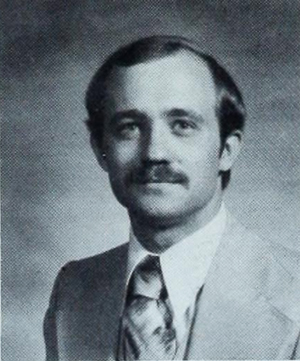
Nearly 40 years of practice in Norfolk, caring for thousands of women, delivering more than 13,000 babies. What’s it like to be so thoroughly integrated into the lives of so many families in a single community?
It’s been amazing to be able to be a small part of so many people’s lives. As an obstetrician, I get to witness the miracle of life on an almost daily basis. These are life-giving events that we have the opportunity to give to others. And I’m sure God looks down on these moments as special ways we can share His love. My experience has shown me that we’re all connected and that we need each other.
One thing I like to help highlight is not only the need for health care providers in rural areas or smaller cities but the joys that a lot of practitioners get out of serving such a community. Your experience in Norfolk is a great example of this. Though I know you came close to what might have been a lifelong career as a Creighton School of Medicine professor.
I enjoyed teaching at Creighton, so much so that I really thought I’d spend the rest of my career there. But my family was in northeast Nebraska, as well as my wife’s family. We wanted our children to be closer to them.
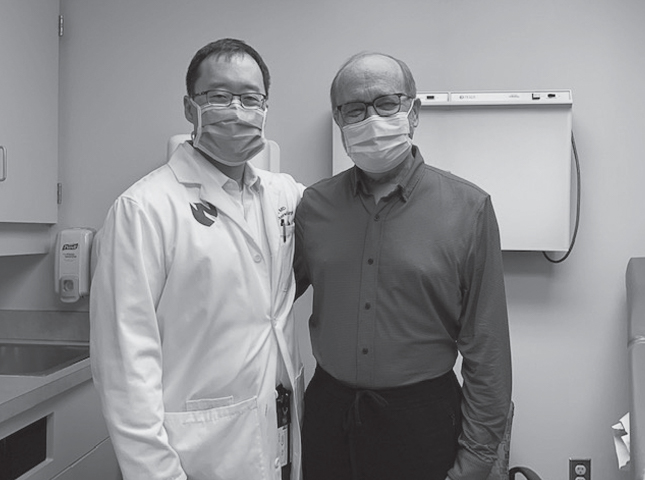
And you got the offer from your fellow faculty member Patrick Heffron, MD’70, to join him at the OB/GYN practice he was establishing in Norfolk.
He was the only obstetrician-gynecologist in Norfolk at the time. And he served a big area of northeast Nebraska. There was such a great need for the service, and I joined him. Since then, I’ve been part of a lot of different lives in a lot of different ways.
One great thing is Creighton, as well as a couple of other schools, has allowed me to continue teaching. Our practice takes students from Creighton and St. Mary’s and other schools for rural rotations, to expose them to rural medicine. That’s been very rewarding.
And to your point about the need for health care in rural areas, I think having opportunities for rural rotations is vital for students to know … What will it be like to practice in a smaller community vs. the bigger cities? Some students have really taken to it. We have a number of students who have graduated and chosen to come back to Norfolk or other smaller cities in rural areas like ours.
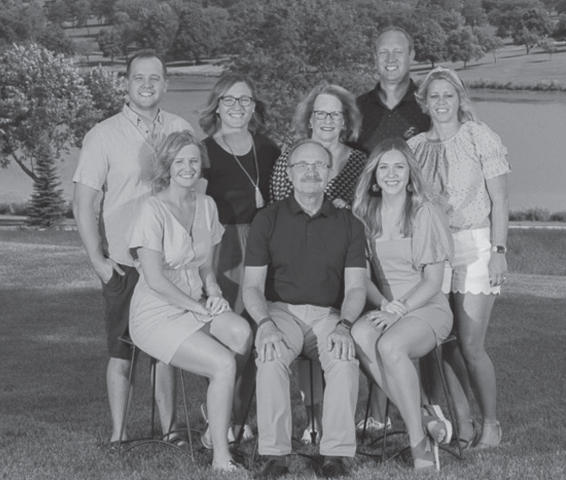
And now your son (Keith Vrbicky, Jr., BS'13, MS'14, MD'19) is joining your practice.
Yes, August 1st. We’re over the moon about that. He’s also a Creighton grad. In my family, all but one of my six children graduated from Creighton. We’ve got blue blood here.
In your book, you describe what was happening to your heart medically and what you and your family were going through emotionally and spiritually. When you were looking back on that time to recount this story, does anything, any moment in particular, stand out? Or is it just one big, nerve-racking blur?
I think it was … going from somebody without any health issues to the next day being told you have severe heart failure. It was frightening. I looked at my wife and my children and their children. I just wasn’t ready to leave my family. So we did our best to fight through it and, by the grace of God, it worked out.
Nearly two years since your operation, it sounds like you’re doing well? Still feeling good?
At first, I was fatigued and required an earlier bedtime. But even that’s getting better now. I have a lot of energy. And I thank God every day that I’m here and able to spend more time with my family and to practice the medicine I love to do.
